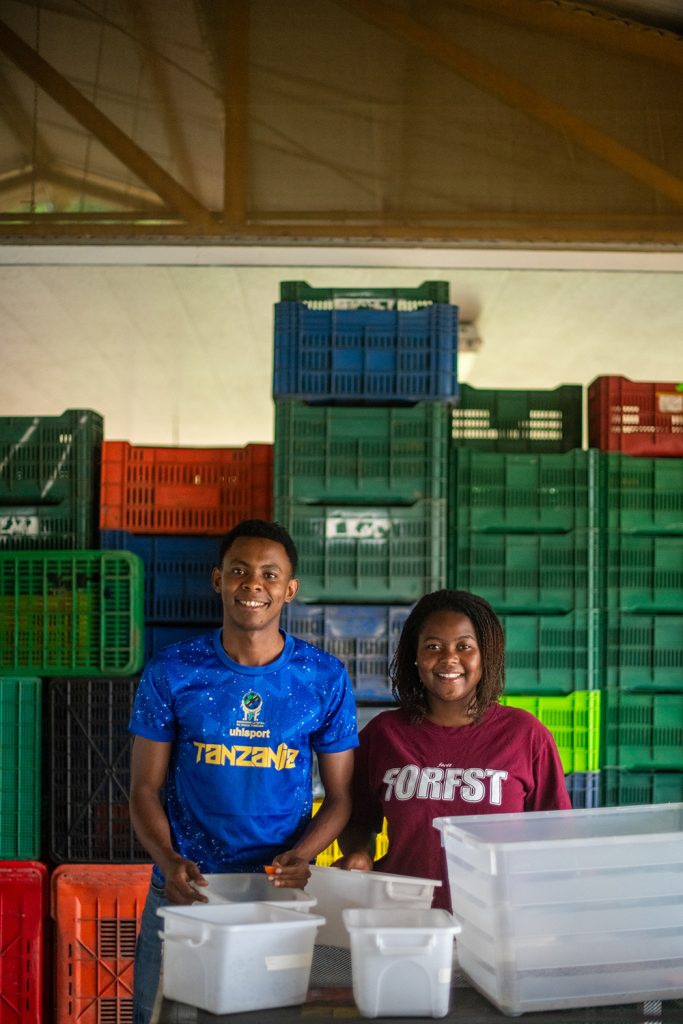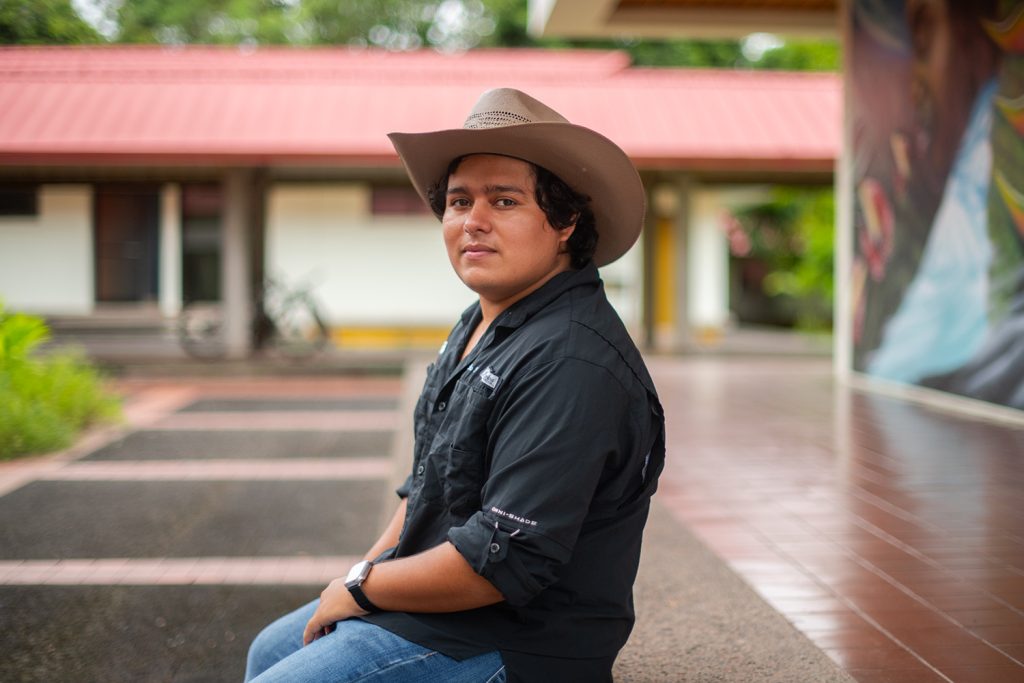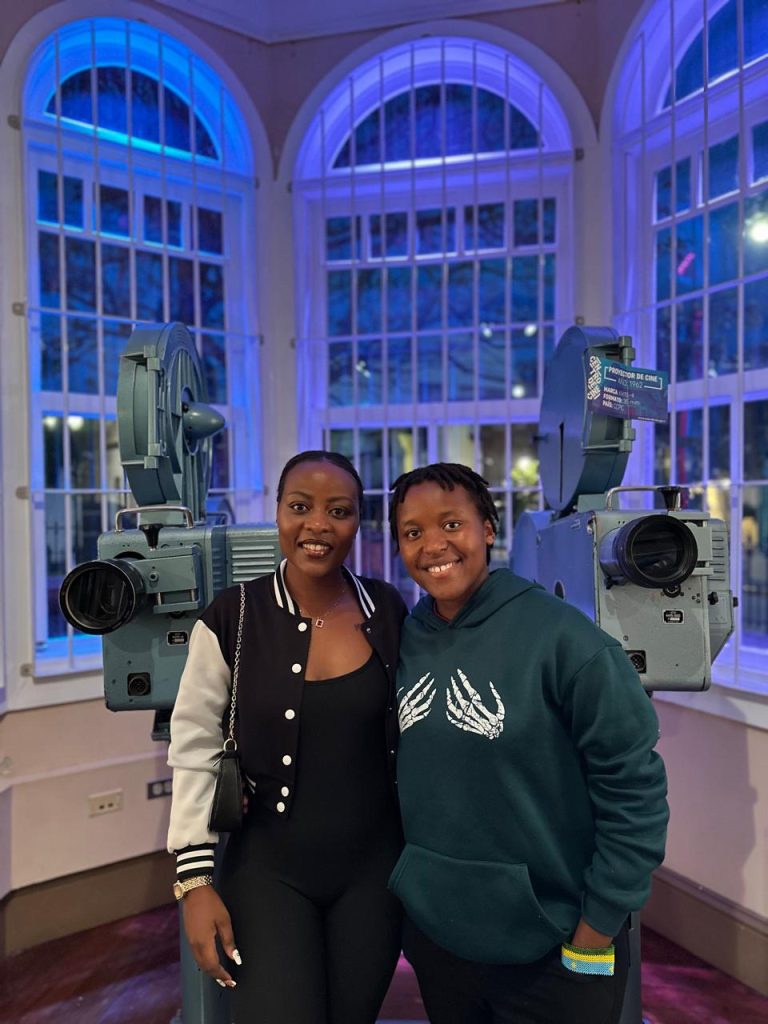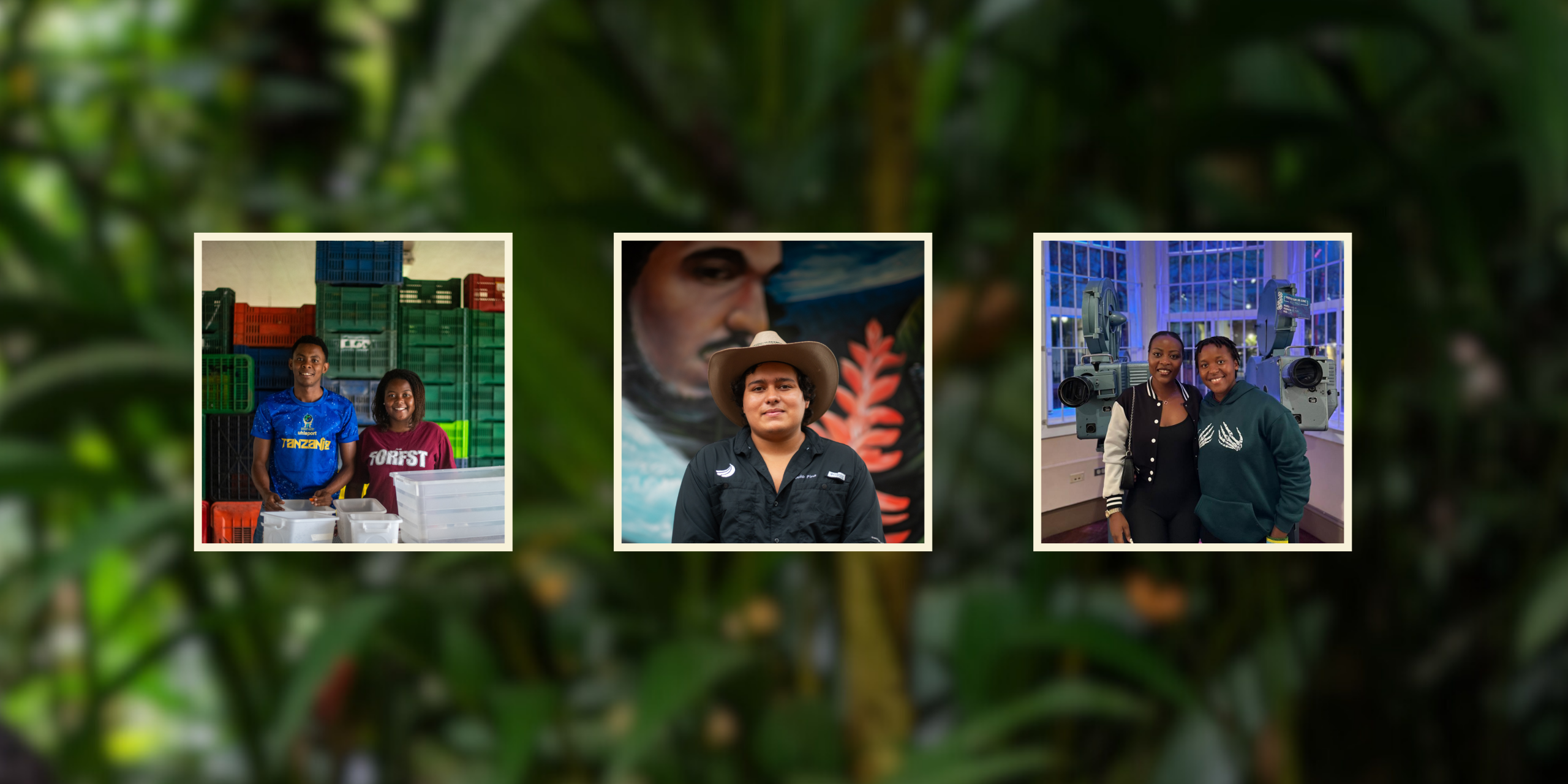Throughout their academic journey at EARTH University, students learn to conceive, plan, manage, and implement business projects that address real challenges in their communities. Complementing this training, and together with strategic partners, the University promotes spaces for financial and technical support, including the Scholars Entrepreneurship Fund (SEF), developed in partnership with the Mastercard Foundation and the Katherine John Murphy Foundation.
Both organizations provide financial support and professional mentoring so that EARTH students can move from idea to action, designing ventures that can thrive in their home countries and promote environmental sustainability, food security, circular economy practices, and local job creation. Students go through a selection process to qualify for financial support, which allows them to expand or make their projects a reality.
“The goal is to strengthen entrepreneurship education at the University through comprehensive support for students seeking to create impact. We don’t just fund ideas; we guide students so they learn to plan, budget, and communicate their projects professionally,” explains Denier Ulloa, Project Coordinator for the SEF program.
More than 20 business ideas are being developed in 2025 across five key areas: agrotechnology, health and well-being, sustainable agro-value chains, renewable energies, and climate change and conservation. Here are three of those stories:

AGPRESS: Insect-based Flour to Fight Malnutrition
Abdulkadir Amiri Hatibu (Class of 2027), Adrian Tashinga Chemugarira (Class of 2027), and Daniel Mndeme (Class of 2026), all Mastercard Foundation Scholars from Tanzania, created AGPRESS—a venture to improve their country’s traditional diet with a sustainable and unconventional protein source. They identified that ugali, a staple food made from corn flour, lacks essential nutrients needed by children. To address this, they researched alternatives and discovered the potential of mealworms (Tenebrio molitor)—edible insects rich in protein and easy to reproduce.
“We wanted to improve something that’s already part of our daily lives. That way, we preserve our traditions while offering a more complete food,” says Daniel.
With support from the Scholars Entrepreneurship Fund (SEF), the students are developing a prototype with technical guidance from an organization called Comida con Insectos Costa Rica, receiving training on insect management and processing. The project aims to establish itself and expand in Tanzania, facing the challenge of adapting to different climatic conditions but maintaining the same purpose: to offer a nutritious, affordable, and culturally accepted flour. In the future, they plan to expand into snacks, tortillas, and protein supplements, promoting a more balanced and sustainable diet.
PINAGRO: Organic Biofertilizers for Sustainable Agriculture
Paulo Pina Sánchez (Class of 2025, Ecuador) is close to graduating. As he prepares to return home, he’s already nurturing a growing project: PINAGRO, a venture that merges the knowledge gained in EARTH classrooms with sustainable practices on his family’s dairy farm. His project focuses on the production and commercialization of bioles, organic fertilizers derived from a biodigester that transforms cattle waste into valuable farm resources: biogas for cooking, liquid biol as fertilizer, and solid compost for soil improvement.

“At first, I didn’t see it as something big. But as I learned more about what the biodigester could do, my family and I started selling biol—and we realized its potential to make the business more circular and sustainable, while also meeting Ecuador’s certification standards,” says Paulo.
Thanks to funding from the Katherine John Murphy Foundation, the project received support for its scaling-up phase, allowing Paulo to increase production and sales capacity. His next goal is to strengthen his market presence in Ecuador—especially among cacao, banana, and corn producers—and to buy biol from other local farmers to enrich and offer a stronger, more competitive product.
EGGSLAND: Women-Led Egg Production in Rwanda
From Rwanda, Glad Guiselle Duzuke (Class of 2027) and Patience Cyuzuzo (Class of 2025)—both part of the Mastercard Foundation Scholars Program—are leading EGGSLAND, an organic egg production project that seeks to improve nutrition and create job opportunities for women in rural communities. Inspired by their experience in the Entrepreneurial Project course, they designed a new model of egg production: chemical-free, based on natural feed for hens, and grounded in circular economy principles where waste is transformed into compost for local farmers.
“We wanted a business that generates income but also impact. Eggs are an essential protein source, and many families in our communities can’t access them regularly. We want to change that,” shares Glad.

With support from the Scholars Entrepreneurship Fund (SEF), they are completing the construction of a chicken coop and purchasing their first 80 hens. In the short term, they plan to sell eggs and donate part of the production to families facing malnutrition. Looking ahead, they dream of expanding to 500 hens and diversifying into new products.
“We’d love for EEGSLAND to grow into a company that inspires other rural women to become entrepreneurs—always with respect for the land and their communities,” adds Glad.
These three projects reflect EARTH’s spirit: the fusion of technical knowledge, innovation, and social commitment. Each initiative begins with a local observation, grows with institutional support, and projects toward a future in which young leaders have the tools, knowledge, and determination to find real solutions to the most pressing challenges of their environments.
We can’t wait to see how their projects continue to grow!
